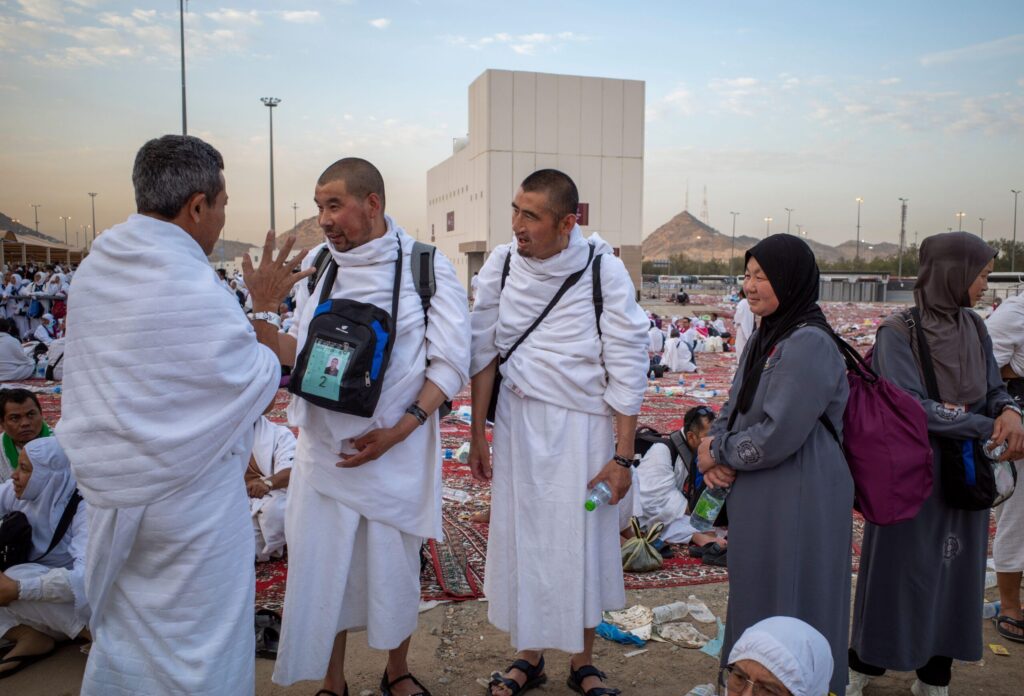It’s no secret that Saudi Arabia and China have become major economic partners in recent years. The kingdom is consistently among Beijing’s top suppliers of crude oil, and China – the world’s second-largest economy – has been Saudi Arabia’s top trade partner every year since 2011.
Chinese companies have made fortunes in construction contracting in the kingdom, valued at more than $56 billion since 2005, making Saudi Arabia a more attractive investment destination in the process.
Over the same period, Chinese foreign direct investment into Saudi Arabia has been worth nearly $15 billion.
As the commercial ties have grown, the political relationship has matured too. During a 2016 state visit by President Xi Jinping the two countries signed a comprehensive strategic partnership agreement, the highest level of diplomatic engagement in the foreign policy of the People’s Republic of China.
To steer the relationship, they established the so-called High Level Joint Committee, co-chaired by vice premier Li Qiang and Crown Prince Mohammed bin Salman. The HLJC has met regularly since 2016, typically resulting in more trade, contracts and investment.
It was after Xi’s 2022 state visit to the country’s capital, Riyadh, that the diplomatic consequences of the bilateral relations became more evident, as it was followed four months later by the stunning news of the Saudi-Iran rapprochement announced in Beijing.
The Saudi public doesn’t know much about China yet, which seems unusual given the depth of their cooperation
Many saw this as a sign that China, the world’s largest oil importer, had grown comfortable with the idea of taking on a more active political role in the Gulf, and that its relationship with Saudi Arabia, the world’s second largest oil producer, would shape its approach to the region.
So the business-to-business and government-to-government sides of the bilateral relationship have been established, but one component that has been lacking is the people-to-people.
The Saudi public doesn’t know much about China yet, which seems unusual given the depth of their cooperation.
Saudi Arabia isn’t alone in this. Despite the massive shift in China’s global status over the past five decades, it remains a mystery to many. Everyone seems to know the basics: a huge population, incredible economic growth and a rising military power. Beyond that, there are a lot of blank spaces.
This is partly a matter of a soft power deficit. While South Korea and Japan have captivated foreign audiences around the world with their popular culture products, few can name a Chinese pop singer or movie star.
Of course, with a domestic audience of 1.4 billion people and a massive overseas Chinese diaspora, Chinese film, television and music producers don’t have to work too hard.
At the same time, Beijing realises that, to become a true global power, it needs to better explain itself to the world.
In its 2015 Belt and Road Initiative white paper, China announced the five cooperation priorities it wanted to focus on.
The first four – policy coordination, infrastructure connectivity, unimpeded trade and financial integration – were consistent with the economic and developmental approach to international relationships we typically associate with China.
The fifth, people-to-people bonds, showed a different side – a China that wants to engage with other countries through cultural and educational initiatives.
With Saudi Arabia, this is coming to fruition, but only slowly.
In 2019 the kingdom, with a population of roughly 20 million nationals, announced that Saudi students from kindergarten to 12th grade would learn Chinese as a foreign language in the national curriculum.
In August, 175 Chinese teachers joined a pilot language programme in elementary and middle schools, with the goal of teaching 102,000 Saudi pupils by the end of this year.
Another ambitious sign of the two countries’ plans for greater popular familiarity was the announcement from the Saudi Ministry of Culture that 2025 has been designated as the “Saudi-Chinese Cultural Year”. The goal is to showcase art, culture, literature and cinema through exhibits and exchanges throughout the year.
In February, Saudi Arabia launched the Prince Mohammed bin Salman Award for Cultural Cooperation, meant to promote cultural synergies with China.
The Saudis described it as “a symbol of the relationship between Saudi Arabia and China, one of cultural interaction, strengthening ties and enriching cross-cultural exchanges”.
Tourism is another facet of this. In June, the kingdom announced that China had received Approved Destination Status, facilitating group travel to Saudi Arabia. As Riyadh builds its tourism industry, it aims to draw 5 million Chinese tourists by 2030.
Taken together, it is clear that these person-to-person ties are still at a nascent stage and there is a long way to go in developing cultural familiarity.
However, the steps being taken today show us that the next generation of Saudi citizens will have a much greater knowledge of China and its people.
And in a world where China is the main target of US trade and tariff policy, the greater the knowledge, the better for the Saudi and Chinese relationship.
Jonathan Fulton is an associate professor of political science at Zayed University in Abu Dhabi and a nonresident senior fellow for Atlantic Council’s Middle East Programs and the Scowcroft Middle East Security Initiative.



